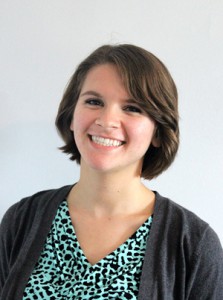I Was a Secular Homeschooler

Religion News Service recently profiled secular parents who homeschool their children. Sam Mauceri, AHA communications intern, shares her experience as a secular homeschooler from 3rd grade to high school graduation.
Evangelicals, kid geniuses, the socially awkward, hippies, sheltered kids with controlling parents, Jesus freaks with 27 kids. Sounds like homeschoolers, right? While some of the stereotypes may hold true, other realities of the homeschooling community may surprise you. Unsurprisingly, of the over 1.5 million homeschoolers in the US, around two-thirds are Christian evangelical. However, according to the HSLDA, 25% of all homeschoolers are secular and that number continues to increase. Unfortunately for non-religious homeschoolers, the prevalence of families who choose to homeschool for religious reasons can make it awfully tricky for a secular homeschooler to select appropriate, non-religious materials. And depending on the location, homeschoolers often have to go to great lengths to find like-minded homeschooling families to plan events and field trips with. A recent article from the Religion News Service highlights a humanist homeschooling mom in Virginia who even created a lending library and online community for non-theistic homeschooling families.
These problems that plague non-theistic families are extremely commonplace. I would know. I was a secular homeschooler myself.
I was homeschooled from 3rd grade through high school graduation because my elementary school seemed to have lost interest in intellectually challenging me and my more advanced peers after the 2nd grade. My non-religious parents did the research and set out to give me a proper education. But being relatively unversed in homeschooling materials at the start, we settled for a Christian math book whose word problems focused on the likes of “Brother John” and “Father Michael.” From then on, my mom began to approach my schoolwork with a “pick and choose” sort of attitude. Take the occasional evangelical-tinged math book if need be, leave the Darwin-denying science book. The library was a gold-mine for homeschoolers on a budget. My academic and ideological needs were met, but we had to do some searching.
In terms of socialization (the #2 concern of non-homeschoolers, right after a flustered “How…how do you even do homeschool?”), I was lucky enough to be raised in a liberal Maryland community, rife with a stunning number of equally liberal homeschoolers. The vast majority of my friends had similar progressive values and were non-religious or Unitarian. There were a few families of the dozens I came into regular contact with who were very religious, but our organization was so open and supportive that it didn’t really make a difference to anyone. Everyone sang together at chorus on Fridays and played pick-up sports on Mondays, regardless of religious belief and non-belief.
However, it is worth noting that not all homeschooling families are lucky enough to have the resources and support system that I had growing up. For families who live in areas where there are fewer homeschoolers, or a higher concentration of evangelical homeschoolers, connection with like-minded kids and parents can feel next to impossible. Lending libraries and online groups are needed for non-theistic families trying to find their way in homeschooling. Hopefully, as more families with different backgrounds and beliefs begin homeschooling, publishers will listen and respond with more secular materials. In the meantime, secular homeschoolers and materials are out there; non-religious families may just have to work a bit harder to find them.
